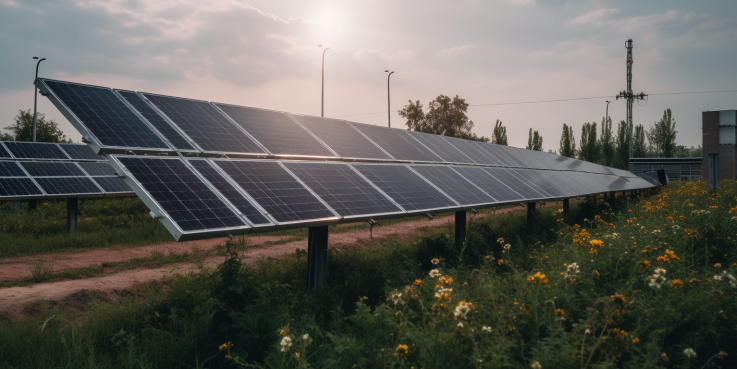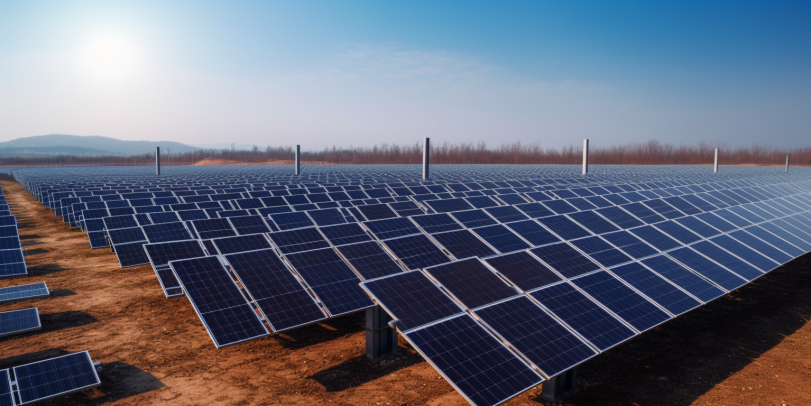
A ray of hope in the fight against climate change, solar panels have emerged as a shining star in the quest for clean and renewable energy. Harnessing the power of the sun, these panels offer a myriad of advantages that have propelled their popularity.
From reducing dependence on the grid and saving money on power bills to combatting climate change and even generating clean energy that can be sold, solar panels have revolutionized the way we think about energy consumption. With government incentives and loans, these panels have become more affordable and attractive, increasing property value in the process.
However, despite their bright future, solar panels do have potential limitations, including high upfront costs, space requirements, and geographical limitations. Additionally, the manufacturing process and disposal of solar panels can have adverse environmental impacts.
Nevertheless, the future of solar panels and solar energy remains promising as advancements continue to be made.
Key Takeaways
- Solar panels are a popular and effective way to generate clean and renewable energy.
- They offer numerous advantages such as reducing electricity bills, increasing property value, and providing a return on investment.
- However, there are also some limitations, including high upfront costs, space requirements, and limitations in geographical locations.
- Despite these limitations, the future of solar panels and solar energy is promising, with advancements in technology and increasing affordability.
Advantages and Benefits
Solar panels offer numerous advantages and benefits, including the generation of clean and renewable energy, decreased dependency on the grid, potential savings on power bills, and the ability to sell excess energy back to the grid.
One of the main advantages of solar energy is its ability to generate clean and renewable energy. By harnessing the power of the sun, solar panels produce electricity without emitting harmful greenhouse gases.
Additionally, solar panels allow homeowners to become less dependent on the grid, reducing their reliance on traditional energy sources and potentially saving money on power bills.
Furthermore, excess solar energy can be sold back to the grid, providing an opportunity for homeowners to earn additional income.
Overall, the advantages of solar energy and the cost savings from solar panels make them an attractive option for homeowners, businesses, and governments alike.

Environmental Impact
The ecological consequences of utilizing solar panel technology may not be as pristine as one might envision. While solar panels are known for generating clean, renewable energy, their production and disposal processes can have a significant carbon footprint.
Here are some emotional responses to consider:
-
Solar panel recycling: Despite efforts to recycle solar panels, the process is still in its infancy, and not all components can be effectively reused. This leads to concerns about the accumulation of electronic waste and the potential release of hazardous materials into the environment.
-
Carbon footprint: The production of solar panels involves the extraction and processing of raw materials, which can contribute to greenhouse gas emissions. Additionally, the transportation and installation of solar panels require energy, further adding to their carbon footprint.
-
Environmental impact: While solar panels offer numerous environmental benefits, it is important to recognize that their lifecycle can have unintended consequences. Proper disposal and recycling methods, as well as ongoing research and development, are necessary to mitigate these impacts and ensure a truly sustainable future for solar panel technology.

Future Innovations
Innovation in the field of solar energy is expected to bring about advancements in efficiency, storage capabilities, and integration with existing infrastructure.
One area of focus is improving solar panel efficiency. Currently, solar panels have an energy conversion rate of around 20-25%. Researchers are working on developing new materials and technologies that can increase this conversion rate, allowing for more electricity to be generated from the same amount of sunlight.
Additionally, advancements in solar panel technology are being made to enhance their storage capabilities. This involves developing better battery systems that can store excess solar energy for use during cloudy days or at night.
These advancements in efficiency and storage capabilities will make solar panels more reliable and efficient, further contributing to the growth of solar energy as a sustainable and viable power source.

